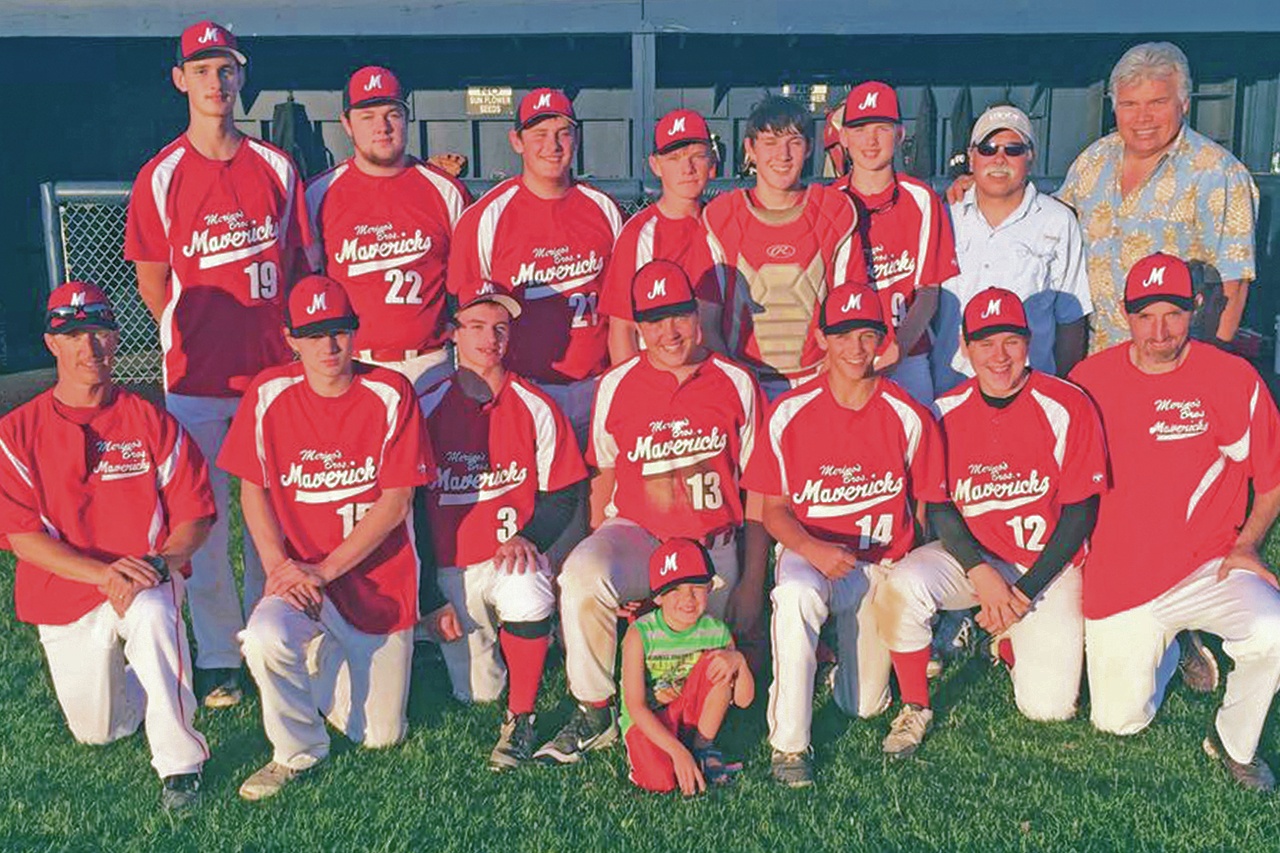In the spring of 2015, Westport native and former mayor, Doug Merino, decided that he wanted to do something in his hometown to promote local youth sports, as well as to honor his brother, lifelong Westport resident Phil Merino, who died at the age of 61 on July 10, 2014.
Toward that end, he contacted Ocosta High School varsity baseball coach Mike Allton, a volunteer assistant for coach Ben Quinby at the time, with the idea of sponsoring some sort of a sign for the team’s home field at Westport’s GAR Park.
Team sponsorship
Allton says he suggested to Merino that instead of a sign, he might consider sponsoring a baseball team to participate in what was then the Summer Senior Babe Ruth program in Grays Harbor. The program provides an opportunity for local high school-aged athletes to participate in competitive baseball beyond the high school season.
“Doug was very much in favor of the idea, so we moved forward with that plan,” said Allton. However, with very little time to get a team together for the 2015 season, “We decided to hold off until this summer to give us the opportunity to get the word out and to recruit players,” said Allton.
Team name
Merino originally chose the team name, Merino’s Mavericks, a nod to Phil’s years in the late 1970s with the former independent minor league team, the Portland Mavericks.
Phil was a standout athlete in a number of high school sports, but especially excelled in baseball. He was a member of the only team in Ocosta history to date to win a team state title — in 1971 — Phil’s senior year.
After serving a four-year hitch in the U.S. Army, Phil attended the University of Nevada-Las Vegas on a baseball scholarship and eventually came home where he played ball for the minor league baseball team, the Grays Harbor Ports.
Both a left- and right-handed pitcher, according to Doug, “No one could throw a ball with the velocity that Phil could,” which is probably why the independent professional baseball team, the Portland Mavericks, stole him from the Ports immediately following a game between the Ports and Mavericks.
Phil played for the Mavericks during the 1976 and 1977 seasons. His contract with the team was later sold to the Minnesota Twins.
He eventually left baseball and came home to work as a commercial crab fisherman, working alongside his brother Joe. They fished aboard the Merino fishing vessels, Pacific Dream and Pacific Dynasty, a career they both continued to successfully pursue until their deaths.
Following the additional loss of his brother Joe, who died at age 64 on Oct. 1, 2015, Doug Merino amended the team name to the Merino Bros Mavericks to honor Joe’s memory, as well.
American Legion program
Last winter, Grays Harbor participants in summer baseball collectively moved to the American Legion summer baseball format as the primary offering.
“In the American Legion program, coaches and players can easily transition from the high school game schedule into coaching during the summer, as opposed to having overlapping games during the spring season,” said Allton.
Team members
Recruiting went well, with more than a dozen South Beach players age 17 and under initially signing up, along with two from Willapa Valley.
“We were allowed to recruit from Willapa Valley High School, as well, because there weren’t enough players there to form a full team,” said Allton.
This inaugural Merino Bros Mavericks team included a dozen players from Ocosta: Zach Allton, Kobe Beck, Cole Hatton, Hunter Hatton, Hayden Hoff, Noah Martin, Jayden Matthews, Sam Quinby, Grant Reid, Kaden Smith, Dereck Thomas and Joe Wardlow. The team was rounded out by Cub Bair and Frank Roonsburg from Willapa Valley.
First season
In their new Merino Bros Mavericks uniforms provided by Doug Merino and his wife Kay, the Single A team played its first season from May 26 through July 13. The 14 games against six other American Legion teams were played primarily in Grays Harbor County, with a few in Thurston and one in Cowlitz.
The team finished the season with a middle-of-the-pack 8-6 overall record.
“We were the smallest school in our division in Legion baseball and we definitely had to play up to be competitive.” said Allton. “I’m really pleased with how the team came together. It was a good first season for us,” he said.
Sponsorship key
Forming an American Legion team requires a strong monetary commitment. According to Allton, each player pays $125 to participate, but those monies don’t come close to covering all the costs for fielding a team.
“In addition to purchasing uniforms, each team has to buy game baseballs. Then there are state participation fees, accident liability insurance costs and umpire costs at $40 for the two officials at each game.
“We are really grateful to the Merinos for stepping up to create an opportunity for these athletes to play competitive summer ball,” said Allton.
Doug Merino, who attended several of the team’s games this summer, says he is very pleased with his and Kay’s decision to sponsor the Mavericks.
“The coaches have done an outstanding job with these boys,” Doug Marino said. “They play with confidence, determination and the true spirit of the game. Helping these athletes continue to play baseball that they so obviously love honors the memory of both Phil and Joe and I’m sure they are both smiling.”



